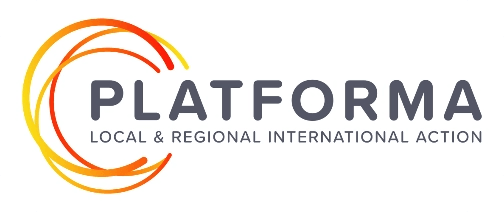Policies require a decentralised, bottom-up, territorial approach as estimates show that 65% of the 169 targets underpinning the 17 SDGs cannot be achieved without LRG involvement as well as respect for the diversity of regional/local conditions and territorial specificities. With this in mind, CEMR and PLATFORMA have made seven recommendations.
1. For its first EU Voluntary Review, in reporting on any progress made in achieving the SDGs in Europe, it should be very clearly indicated by the European Union how the different levels of governance and civil society organisations have contributed to this process.
2. National governments and the EU should accelerate the localisation and territorialisation of the SDGs. To do this, they need to give LRGs appropriate autonomy of action, adequate means and resources to implement the 2030 Agenda in their communities. All directives and new initiatives and funds must be developed in close consultation with LRGs and their representative associations in order to determine whether the necessary transformation can actually materialise on the ground.
3. The production of VLRs and VSRs, as tools to engage with citizens, must be further encouraged and integrated in the VNRs. It would help raise people’s awareness and broaden their knowledge of global challenges, thus reinforcing the capacity of all to implement the necessary societal change.
4. VNRs need to include relevant disaggregated data and information for the subnational level. Consequently, LRGs call for the unwavering recognition and inclusion by national governments of LRGs and their associations in their monitoring and reporting of progress in the implementation of SDGs.
5. The EU institutions and the European States should give political space and recognition to LRGs by establishing regular dialogue with the subnational levels and by including local elected representatives in their delegations to any relevant high-level meetings (such as the HLPF, SDG summits and others hosted by the United Nations and the European institutions).
6. International cooperation to achieve the 2030 Agenda at the local and regional levels is crucial and LRGs are asking for more support to accomplish this. Sharing and learning among peers in Europe and further afield can bring positive change at local level and improve local public policies through co-inspiration. We continue to support the global 2030 Agenda in Europe and around the world, particularly through more innovative partnerships with peers, as well as through a model of governance based on partnerships and decentralised cooperation5.
7. The true implementation of SDGs will not transpire without the specific inclusion of youth, women and vulnerable groups in decision-making and all related activities that contribute to achieving the SDGs.
5 Development cooperation between subnational governments. To learn more, see “Decentralised cooperation to achieve the 2030 Agenda – Towards a new generation of multi-stakeholder partnerships”, by Agustí Fernández de Losada Passols and Anna Calvete Moren, CPMR-PLATFORMA
